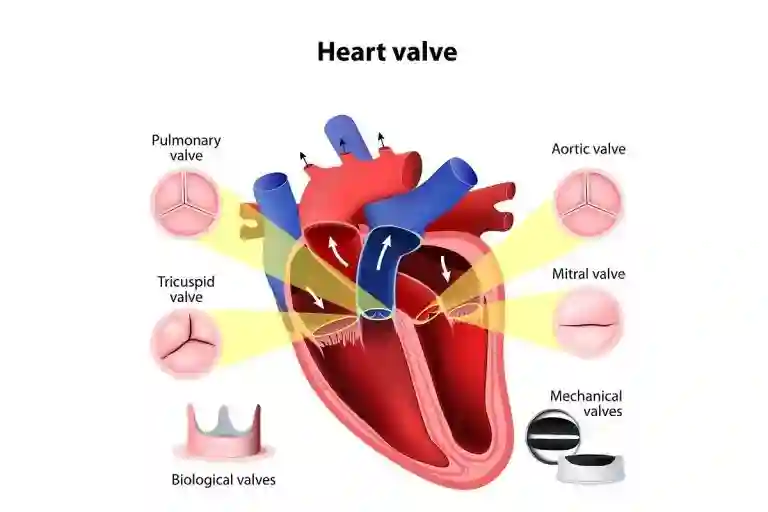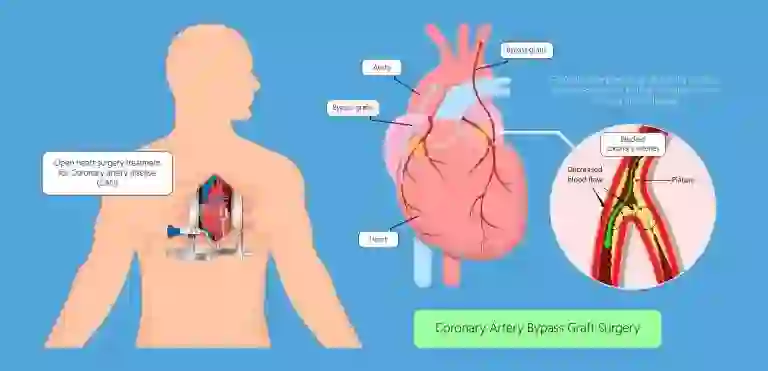Minimal invasive cardiac surgery is usually done in patients with a better heart function and those with 3-4 blockages inside the heart
Cases of heart attacks among young people are increasing dramatically. Experts say that the number will only continue to grow and blamed it on poor lifestyle choices such as lack of exercise and a bad diet, which is also increasing the incidents of type 2 diabetes.
Earlier heart problems were primarily seen in the 50-plus population. However, recently more people in their 30s and 40s are getting affected. As per WHO, cardiovascular diseases (CDV) account for about 45 percent of deaths in the case of Indian adults aged 40 to 69. Disorders in the heart and blood vessels lead to most CVDs and often these patients need to undergo surgery. Creating awareness of cardiac health is very crucial and is the need of the hour.
In an exclusive interaction with TheHealthSite, Dr. Mangesh Kohale, Consultant Cardiac Surgeon, Wockhardt Hospitals in Mumbai spoke about the advantages of minimally invasive cardiac surgery over open-heart surgery.
Preference for Minimally Invasive Cardiac Surgery is on the Rise
There are several ways to treat a person with cardiac problems with advanced technology. Patients prefer shorter hospital stays and fewer postoperative complications, hence opt for Minimal Invasive Surgeries (MIS) over open-heart surgery said Dr. Kohale.
He mentioned a case of a 76-year-old man from Madhya Pradesh who recently suffered from a heart attack. The man got the angiography done in his state, where the doctors also suggested a bypass, but he was not ready to opt for it considering his fear about the surgery. Within a week, he was admitted to Wockhardt Hospitals, where Dr. Kohale and his team did his bypass via minimally invasive surgery.
Dr. Kohale recalled, “In his case, the heart pumping was at 25 percent which is a risk factor for the outcome of any procedure, but the only option was bypass surgery. We did his bypass via minimally invasive surgery. We usually do MICS (Minimal invasive cardiac surgery) in patients with a better heart function and those with 3-4 blockages inside the heart his surgery was successfully done with a small incision via the breastbone. The patient got discharged on the 5th day and doing well by performing his daily routine without any problems.”
Benefits of Minimally Invasive Cardiac Surgery
Dr. Kohale explained that while doing minimally invasive surgery, a small incision is made on the chest to reach the heart between ribs, rather than cutting via breastbone.
This procedure is safe, and the success rate is high with less risk. A doctor will suggest MIS depending on a few factors such as the type of heart disease one is diagnosed with, how severe it is; the patient’s age, medical history, lifestyle; and results of tests done before surgery. As compared with the open-heart surgery, this type of surgery is less painful and has a quicker recovery in patients
Minimally Invasive Heart Surgery Has Various Benefits
- Less pain
- Faster recovery
- No cutting of bones
- No opening of the chest
- Short stay at the hospital
- Minimal scarring
- Less blood loss
- Decreased blood transfusion
Procedures for Minimally Invasive Heart Surgeries
- Mitral valve repair or replacement
- Aortic valve replacement
- Atrial septal defect
Coronary Artery Bypass Grafting (CABG)
This is a surgical procedure used to treat coronary heart disease. It helps divert blood around the clogged or narrowed parts of the major arteries to improve the oxygen supply and blood flow to the heart.
Dr. Mangesh Kohale
Consultant Cardiac Surgeon
Wockhardt Hospitals, Mumbai
To book an appointment call: +918291101001
Source: https://www.thehealthsite.com/diseases-conditions/heart-disease/advantages-of-minimal-invasive-cardiac-surgery-over-open-heart-surgery-881990/


















